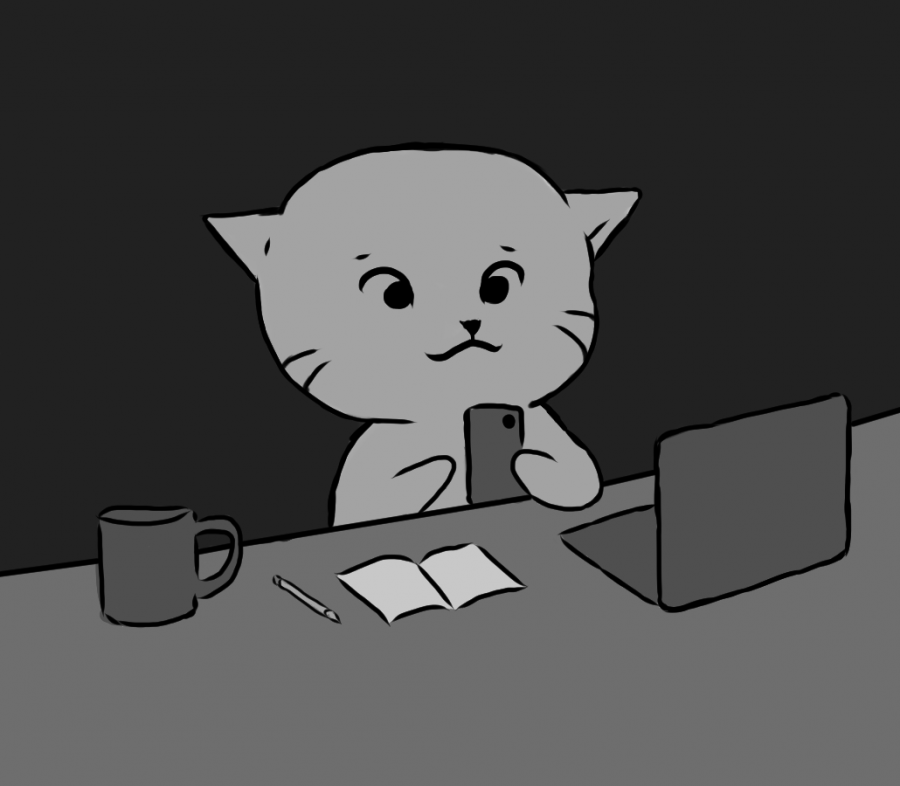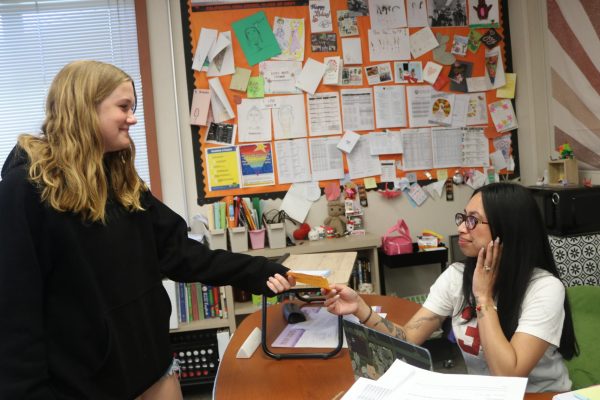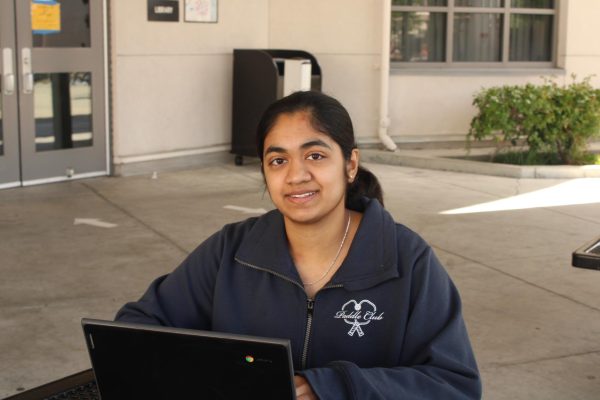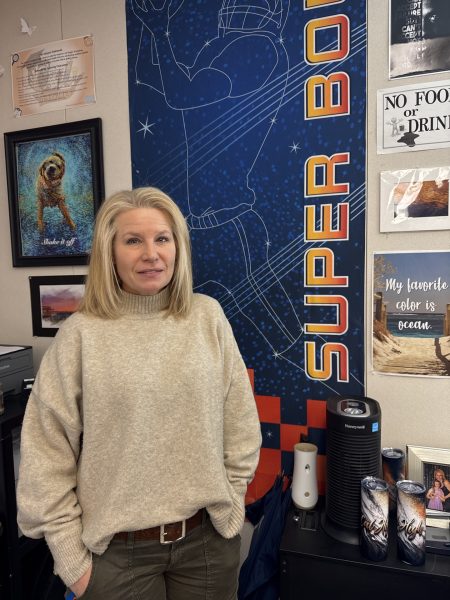Remote learning raises concerns over cheating
Teachers adjust testing methods to maintain academic honesty
Online learning has made it easier than ever for students to cheat on tests and quizzes.
Remote learning may be the only opportunity for many students to continue their education at home, but the possibilities and different techniques it offers to students for cheating are endless.
Cheating has always been a day-to-day issue within school, but now students no longer have to look at their neighbor’s paper or write down notes on their hands. Simply opening up a separate tab on their computer screen can give them the answers to all their questions.
“It’s really easy for students to cheat,” senior Giancarlo Castillo said. “They can just pull up another tab on their web browsers to look up answers, or have another device, like a phone or laptop, to look up answers on.”
With a powerful search engine like Google on each student’s device, the ease of simply glancing at a phone makes a very enticing move for students who may be stuck on a problem.
Teachers are well aware of the increased risk of cheating.
“I am very worried about it, it’s something you’ve always known will happen at some point,” history teacher Ryan Cook said. “With remote learning it’s easier to cheat…and harder to detect.”
Freshman Trenton von Sosen agrees with Cook’s worries about academic dishonesty.
“There are also other factors that [can] contribute to a different average score,” von Sonsen wrote in an email. “Teachers making the tests differently could make it harder to cheat, but that may be tough.”
The method of changing the tests for each student is already being used, so that every student can get an equal chance for a good grade.
“We use Webassign now, where each question for each student is different,” said math teacher Jatinder Singh. “Since it is a timed test, chances are that [students] won’t have enough time to look for answers.”
In the math department, this is a common procedure to decrease the ease of popping open another tab. Simply adding a timer gives less of a window to search for answers.
In other classes, teachers have embraced the accessibility to the Internet and allowed students the ability to use their notes. Cook believes teachers should acknowledge that most students will resort to online sources.
“By not doing anything you are giving an advantage to the students who will cheat,” Cook said. “So giving everyone the opportunity to use notes gives everyone an equal chance at that grade.”
Cook’s process attempts to level the playing field for students who stay honest to their work and those that don’t. By letting everyone have the opportunity to use notes, along with having more complex, thought-provoking questions, Cook can set a standard that is achievable for all students.
Different teachers are finding their own ways of dealing with this threat to get the most honest scores achievable at home, but some continue to question how effective anti-cheating protocols are.
“I don’t think a majority of test scores earned during remote learning can be considered legitimate,” Castillo said. “It’s just too easy to cheat, and the teachers and staff have no real way to counter it.”
Teachers are doing what they can by making changes to finals and testing to ensure everyone has a fair chance for a grade while making it harder to cheat.
But as long as students are at home, the risk of academic dishonesty is at a high. Cheating looks way more desirable than before, especially because of the havoc quarantine creates for study habits and sleeping schedules
“Remote learning has negatively impacted my study routine tremendously,” Castillo said. “I find it hard sometimes to focus and work, especially with all the screens and distractions that I have at home.”
Castillo said remote learning inhibited his ability to retain important details, along with his motivation levels.
With finals this week, students had to remember to maintain their health and stress levels to properly prepare for their tests.
“I personally don’t feel a lot of pressure,” von Sonsen said heading into finals week. “I think that credit should be given to teachers that are trying to make this situation as stress free as possible.”

Justin Singh is a sophomore at Cal High. He is new to the journalism experience and looks forward to working with the others. Justin was born in New York...

Lily Hansen is a freshman at california high school. She is a writer for the newspaper. She loves to produce music, write songs and sing.She also is really...









